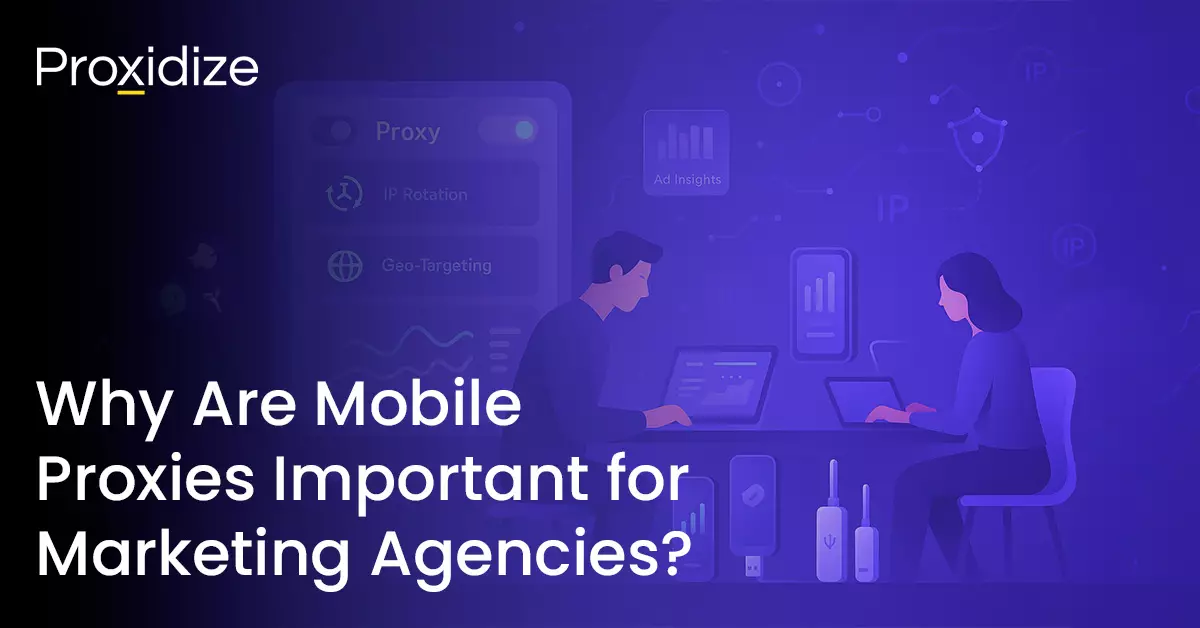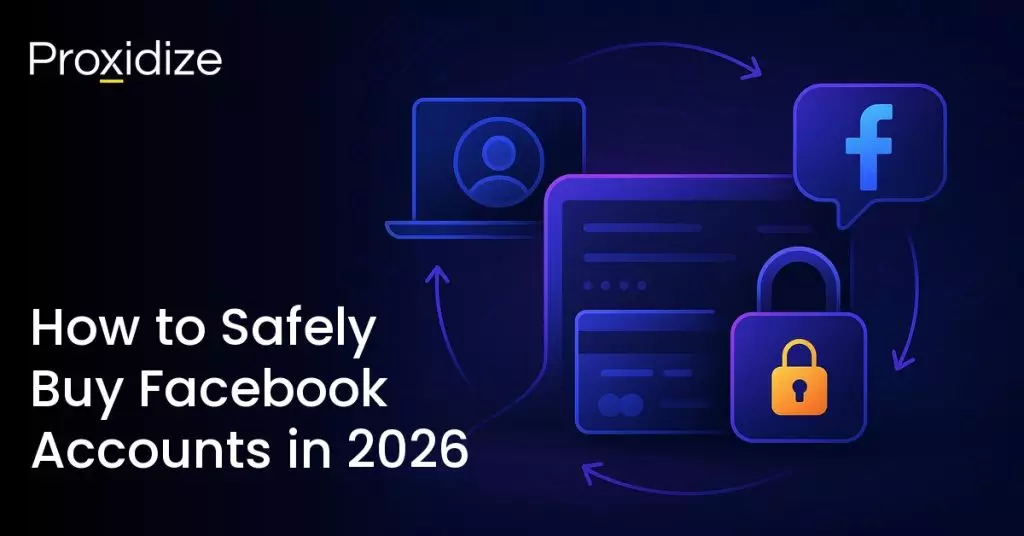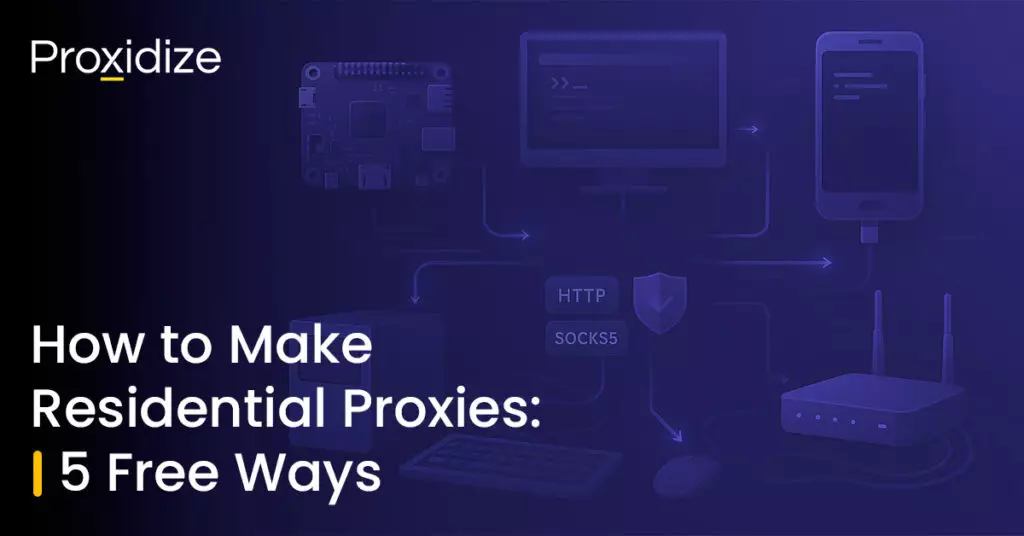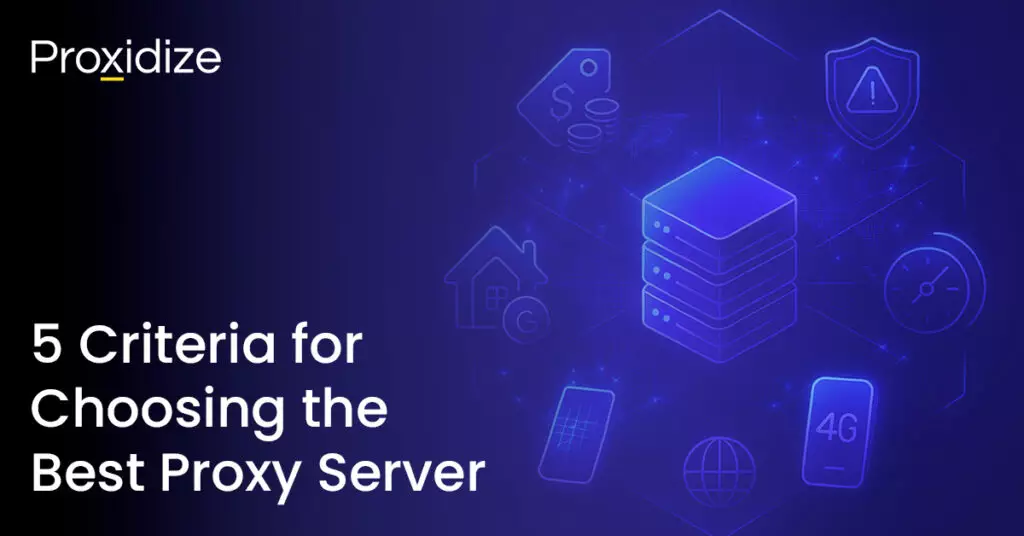Mobile proxy technologies have become popular in recent years due to their advantages over other proxy alternatives. They are becoming acknowledged as a tool that can help businesses in different markets and industries. In the travel and hospitality sector, per se, mobile proxies can be used to access and scrape data from various travel & booking sites, allowing it to create competitive pricing and marketing strategies.
They are also beneficial to real estate agents, assisting in accessing location-specific listings and enabling agents to view and manage them as if they were in the target location. Thus, encouraging effective property marketing and sales. What’s similar across all industries utilizing mobile proxy technologies is that they have an advantageous impact on their marketing strategies.
When it comes to marketing agencies, mobile proxy technology could be a vital solution in enhancing their activities. A marketing agency’s typical responsibilities include generating leads, managing accounts, researching markets, and creating/reviewing social media content, with the ultimate goal being reaching and converting as many customers as possible.
Because content creation is a crucial aspect of marketing, agencies can use tools such as video editors to transform content and reach local audiences. For instance, if Spanish is the primary language in one of their client’s key locations, adding subtitles and translating the subtitles into Spanish becomes effortless.
Using mobile proxies, agencies can leverage a competitive advantage by reaching a wider audience, having more effective targeted campaigns, and conducting competitor analysis. This article will explore why mobile proxies are essential for marketing agencies and the benefits they provide in enhancing their operations.
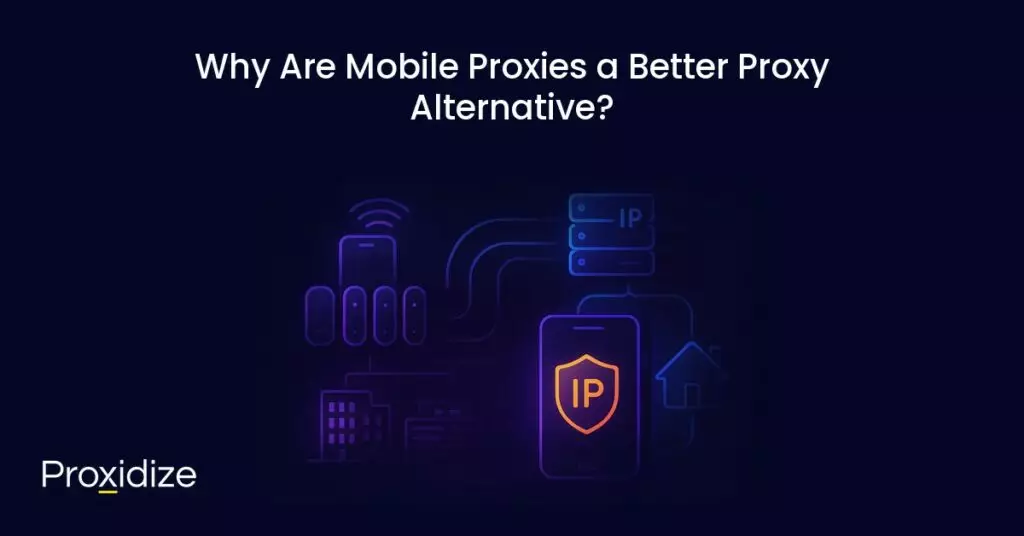
Why Are Mobile Proxies a Better Proxy Alternative?
Before we jump into the benefits mobile proxies provide for marketing agencies, let’s first discuss why they’re a better proxy alternative. Mobile proxy is a relatively new technology that allows users to mask their IP address using real 3G/4G/5G connections supplied by mobile carriers. It provides users with legitimate mobile device IP addresses, so they’re unlikely to get banned as it comes from a trusted source. Additionally, a mobile proxy often comes with IP rotation capabilities, allowing users to frequently change IP addresses, making it harder to get flagged.
Meanwhile, a datacenter proxy supplies users with an IP address originating from a data center of servers. Although they can have fewer latencies, they often have a limited and shared proxy pool. Therefore, a datacenter IP may have been used on other devices and is susceptible to being traced back to an IP’s subnet, making it likely to get banned. A residential proxy, on the other hand, assigns devices with an IP address originating from residences connected to ISPs. Although they’re harder to recognize, machine learning technologies and suspicious behavior will likely get a residential proxy banned.
However, most mobile proxy providers will only rent you their proxy services for a certain period. Unlike Proxidize, which provides you with all the hardware and software you need to DIY an on-premise mobile proxy solution using 3G/4G/5G mobile phones or USB modems. You also don’t need to have the expertise to run them, as we run all the complex technicalities for you! This method is the most optimal and innovative way of acquiring proxies for various reasons:
- Rented IPs can be expensive, especially if you need a large number of them. However, making your proxy with Proxidize can be more cost-effective. In fact, it will cost much less than using a typical mobile or residential proxy, at just $0.1/GB! So if you’re looking to save money on proxies, Proxidize is a great option to consider, especially for the long run.
- Rented proxies often have slower response times due to being located in different regions, thus causing higher latencies. However, with a DIY mobile proxy service like Proxidize, speed isn’t an issue. Thanks to its on-premise solution, it provides faster speeds of up to 150MBps.
- When using rented IPs, your control over access may be limited and you’ll have to rely on your provider’s security measures. But, creating your mobile proxy can actually give you greater security and privacy. You’ll have full control over who can access the network, thus reducing the risk of unauthorized access. Therefore, with an on-premise proxy solution, there’s no need to rely on third-party providers for security purposes.
- Lastly, Proxidize’s CGNAT technology makes IP bans largely ineffective. In a traditional IP ban, access to a specific IP address is blocked. CGNAT uses dynamic IP addresses which are shared by multiple users, so a ban on a specific IP would also affect other users. This dynamic nature makes it difficult to pinpoint and block a single user’s access.
If you’re interested in learning more about our on-premise mobile proxy solutions, head over to our Knowledge Base, and get to know how Proxidize satisfies 1000+ customers in over 70 countries. From our mobile app to our extensive list of hardware, we ensure your business will scale like never before.
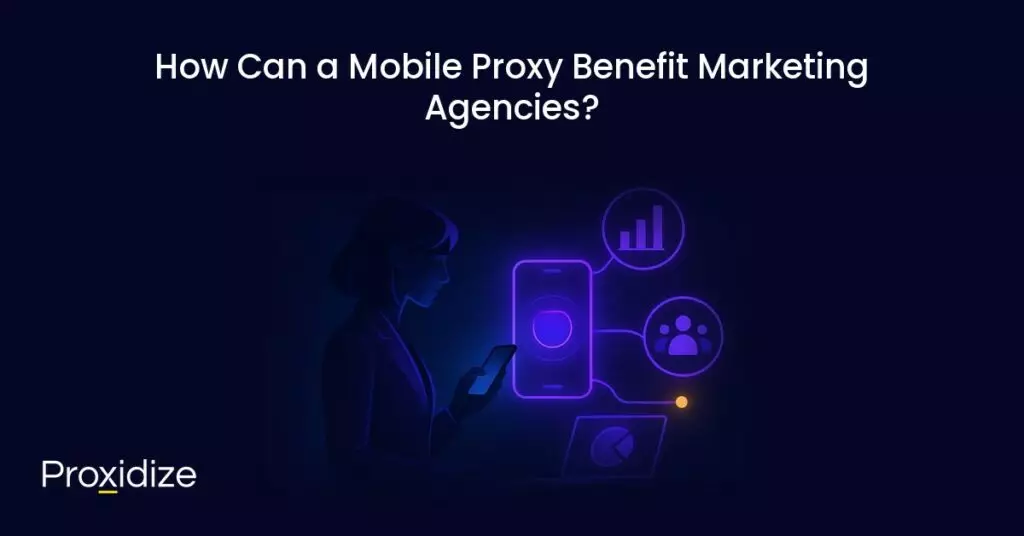
How Can a Mobile Proxy Benefit Marketing Agencies?
In today’s fast-growing digital economy, marketing agencies face numerous challenges in executing successful campaigns and staying ahead of the competition. With the increasing reliance on mobile devices and the need for accurate market segmentation, mobile proxies have emerged as a valuable tool for achieving those goals.
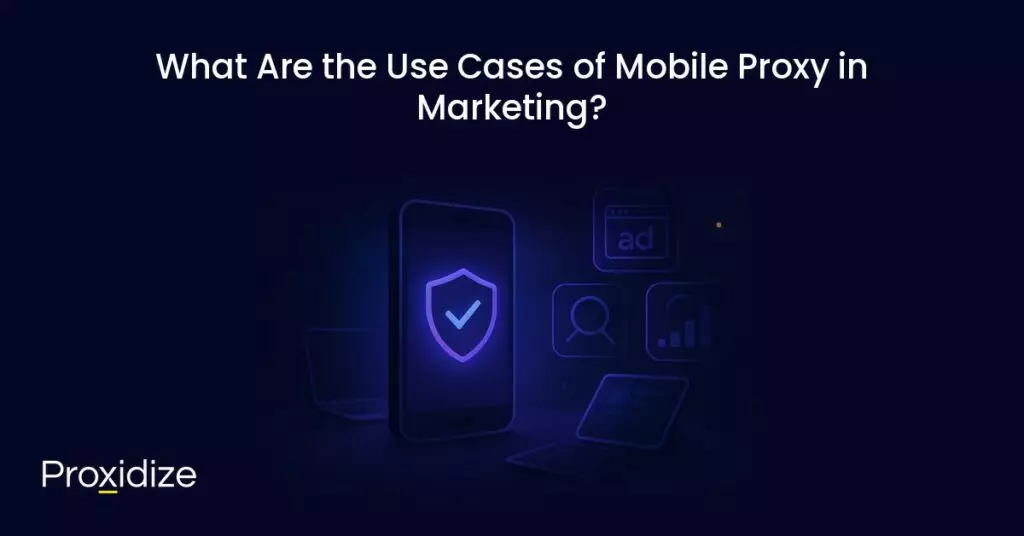
What Are the Use Cases of Mobile Proxy in Marketing?
To understand why mobile proxies have become an indispensable tool for marketing professionals, we need to look at their various use cases and how they’d work. From ad verification and competitor analysis to app testing and data collection, mobile proxies are revolutionizing the methods marketing agencies operate.
1. Accurate Ad Verification
For example, a marketing agency is working with a travel company that offers vacation packages to various destinations. When using mobile proxies, the agency can run targeted campaigns to generate leads from specific regions by simulating user behavior. They can access travel booking sites and review platforms, allowing them to analyze preferences, pricing, and promotions offered by competitors in each target market.
Thus, allowing the agency to create highly targeted and personalized campaigns, such as exclusive offers and itineraries. The geolocation targeting of mobile proxies will enable agencies to deliver precisely tailored messaging, increasing the chances of attracting clients and bookings for the travel company.
2. Geolocation Targeting
Let’s say, a marketing agency is working with a global fashion brand that wants to promote a new line of products specifically tailored to customers in different countries. With mobile proxy technology, the agency can access the brand’s website and social media accounts using IP addresses from specific target locations. This enables them to create and test personalized messaging and promotions tailored to the cultural preferences and interests of customers in each target market.
For instance, they can simulate user behavior from New York, London, and Tokyo and deliver localized content, pricing, and promotions that resonate with customers in those regions. This precise geolocation targeting facilitated by mobile proxies helps the agency maximize engagement, conversions, and brand relevance in different markets, ultimately driving the brand’s global success.
3. Competitor Analysis
Consider that a marketing agency is working with a client in the e-commerce industry that wants to understand how its main competitor is running their latest marketing campaign, and what strategies they are employing to drive customer engagement. The agency can access the competitor’s website and social media profiles from various geolocations and mobile devices. They can analyze the competitor’s ad placements, content, messaging, and promotional offers across different markets.
This allows the agency to gather valuable insights into the competitor’s target audience, pricing strategies, and content effectiveness. With this information, the agency can adjust its client’s marketing approach, tailor their messaging, and introduce unique features or offers to gain a competitive advantage. Mobile proxies enable the agency to conduct competitor analysis discreetly and stay updated on industry trends, ultimately helping them deliver more impactful campaigns for their client.
4. Mobile App Testing
For instance, a marketing agency is assisting a fintech startup in launching a new mobile banking application. It wants to ensure that the app functions seamlessly for users across different locations and mobile networks. When utilizing mobile proxies, they can simulate user interactions and test the app’s functionality from various geolocations.
This allows the agency to verify if the app handles different currencies, language settings, and regulatory requirements specific to each region. Through mobile proxy technology, the agency can conduct comprehensive testing, identify any usability or performance issues, and optimize the app’s user experience to cater to diverse audiences worldwide.
5. Data Collection
Granted a marketing agency is working with a client launching a new line of skincare products. They need to understand the current market trends, consumer preferences, and competitor offerings in the skincare industry. With mobile proxies, they can scrape data from various mobile sources such as social media platforms, e-commerce websites, and mobile apps to collect valuable information.
For example, they can gather data on social media engagement rates, product reviews, and customer feedback from different regions using mobile proxies with various geolocations. This data can be analyzed to identify emerging trends, popular ingredients, and consumer pain points in the skincare industry. With this information, the agency can tailor their marketing strategy to align with current market trends, consumer preferences, and competitive offerings.
6. Bypass Restrictions
Suppose that a marketing agency is working with a client who wants to launch a new streaming service in a specific country. However, the streaming service they are competing against is only available to users with IP addresses from that country. Using mobile proxies, the agency can bypass these IP restrictions and gain access to the competitor’s streaming platform.
This allows them to analyze the content library, user interface, pricing, and overall user experience. With this valuable information, the agency can understand the local market preferences, identify content gaps or opportunities, and create a strategic plan to differentiate their client’s streaming service. Mobile proxies enable the agency to access region-specific content and platforms, providing them with a competitive edge in their market research and campaign planning efforts.
7. Ad Fraud Prevention
Let’s say a marketing agency is running a display advertising campaign for a client and wants to ensure that the ad impressions and clicks they are paying for are legitimate and not generated by fraudulent bots or click farms. By using mobile proxies, the agency can simulate user behavior from various locations and devices to verify the ad’s performance and ensure that it is being displayed to actual human users.
This helps the agency detect suspicious activities or irregularities in the campaign, such as abnormal traffic patterns or click-through rates. With this information, the agency can take proactive measures to prevent ad fraud, such as blocking suspicious IP addresses or adjusting the targeting parameters to improve the ad’s relevance to the intended audience. By leveraging mobile proxies to prevent ad fraud, marketing agencies can protect their clients’ advertising budgets and ensure the success of their campaigns.
8. Social Media Management
Marketing agencies can leverage mobile proxies for social media management by accessing social media platforms from different IP addresses and locations. For instance, if an agency is managing a global brand’s social media presence, it can use mobile proxies to simulate user behavior from various countries.
This allows them to schedule posts at optimal times for each region, engage with local audiences, and ensure that content is relevant to specific markets. The agency can effectively manage multiple accounts, maintain authenticity, and deliver tailored social media strategies for its clients using mobile proxy technologies.
9. SEO Optimization
Marketing agencies can utilize mobile proxies for SEO by conducting keyword research, monitoring search engine rankings, and analyzing competitor strategies from various geolocations and mobile devices. For example, a marketing agency working with a client in the travel industry can use mobile proxies to simulate searches from different locations, such as “best beach resorts in Hawaii” or “top tourist attractions in Paris.”
When analyzing the search results and rankings, the agency can identify popular keywords and optimize their client’s website content accordingly to improve organic search visibility in specific target markets. Additionally, by using mobile proxies to monitor competitor websites and track their rankings across different locations, the agency can gain insights into successful SEO strategies and make data-driven decisions to stay ahead in the competitive landscape.
10. Affiliate Marketing
When an agency is running an affiliate marketing campaign on Instagram, using mobile proxies, they can manage multiple Instagram accounts from different IP addresses and mobile devices. This allows them to create separate affiliate accounts with unique proxies for each account. With these mobile proxies, the agency can engage with target audiences, post affiliate links, and track the performance of each account without violating Instagram’s usage limits or triggering any suspicious activity. In leveraging mobile proxies, the agency can effectively scale its affiliate marketing efforts on social media, reach wider audiences, and increase its chances of driving affiliate conversions and earning commissions.
11. Enhanced Privacy & Security
A marketing agency may handle confidential client data and sensitive campaign information. Using mobile proxies, the agency can ensure that their IP address is concealed, making it more difficult for malicious actors to trace their online activities or gain unauthorized access to their systems. This enhanced privacy and security measure helps protect valuable data, maintain client trust, and mitigate the potential risks associated with cyber threats and data breaches.
12. A/B Testing
A marketing agency running a digital advertising campaign for an e-commerce client can use mobile proxies to conduct A/B testing. They’d create two versions of an ad creative or landing page and assign each version to a different IP address using mobile proxies. When monitoring the performance of each version, such as click-through rates, conversion rates, and engagement metrics, the agency can determine which version performs better in different geographic locations. This allows them to optimize their campaign by refining the ad creatives, landing pages, or targeting parameters based on the A/B test results, ultimately improving the overall effectiveness and ROI of the client’s advertising efforts.
The Final Verdict on Mobile Proxies in Marketing
Overall, mobile proxies are essential for marketing agencies. They offer valuable benefits and opportunities that empower agencies to navigate the fast-paced digital world. With the right knowledge and information, you can make data-driven decisions in your campaigns, gain a competitive edge, and deliver targeted and impactful campaigns to your clients. Proxidize can help you leverage mobile devices and their IPs, unlocking new avenues for growth, audience engagement, and success in digital marketing, using our hardware and software solutions. So take action now and discover how Proxidize can help your agency succeed!
